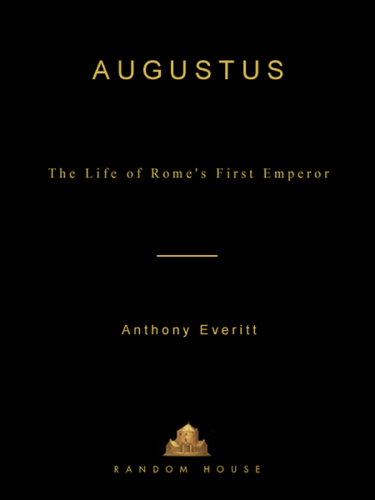
Augustus
The Life of Rome's First Emperor
کتاب های مرتبط
- اطلاعات
- نقد و بررسی
- دیدگاه کاربران
نقد و بررسی

July 31, 2006
British author Everitt begins his biography of Augustus (63 B.C.– A.D. 14) with a novelistic reconstruction of the Roman emperor's last days, offering a new spin on his murder at the hands of his wife, Livia. Everitt presents the death as an assisted suicide intended to speed and secure the transition of imperial power to his stepson Tiberius. Later, Everitt presents a careful historical argument for this theory—and, save for a few other shadowy incidents such as the banishment of the poet Ovid, he keeps guesswork to a minimum, building his narrative carefully on solid evidence. Everitt (Cicero
) makes Augustus's rapid rise through Roman society comprehensible to contemporary readers, deftly shifting through the major phases of his life, from childhood through his adoption by his great-uncle Julius Caesar to the power struggle with Mark Antony that ended with Augustus's recognition as both imperator
and princeps,
or "first citizen." Everitt also neatly presents his subject's complex personality, revealing how Augustus secured a political infrastructure that would last for centuries while reportedly keeping up a highly active sex life, all the while fighting off longstanding rumors of cowardice in battle. This familiar story is fresh again in this lively retelling.

Starred review from September 1, 2006
Close on the heels of a flood of books about Alexander the Great comes a very readable biography of Caesar Augustus (Octavian), first emperor of Rome. Everitt wrote a similar biography of Cicero ("Cicero: The Life and Times of Rome's Greatest Politician"), and while neither work tills new soil in the name of scholarship, both make these Romans and their era more accessible. In "Augustus", Everitt titles the chapter about the proscriptions of Augustus and Antony -The Killing Fields - to give readers an appreciation of the slaughter promulgated to defang the Senate of Rome and raise money for the revolution. Even on his deathbed Augustus was killing relatives to ensure a smooth transition. Still, the author seems genuinely to think Augustus likable. Moreover, despite an unwillingness to go out on a limb (or perhaps because of it), Everitt includes an array of opinions on particular topics; for example, Cleopatra's role in Rome's history and the events surrounding her death are dealt with evenhandedly, with readers left to decide whether they wish to pursue further exploration. Recommended for all libraries. [See Prepub Alert, "LJ" 6/1/06.]" -Clay Williams, Hunter Coll. Lib., New York"
Copyright 2006 Library Journal, LLC Used with permission.

Starred review from October 15, 2006
Everitt, whose biography of the great orator Cicero evoked Rome on the cusp of empire with dazzling energy, again captures the color of the city and an era in a biography of Rome's first bona fide emperor. Born Gaius Octavius in a town south of the city, Octavius wasn't automatically marked for a political career. But his family was related to Julius Caesar by marriage, and the great general took the boy under his wing and made him his protege. After Caesar's assassination in 44 BCE, Octavius was surprised to learn that his mentor had formally adopted him in his will, making the 19-year-old a serious contender for power in Rome. Required to deal with both Caesar's enemies and his old allies, Octavius' power wasn't truly solidified until he went to war with and defeated Mark Antony, his chief political rival. Taking the name Caesar Augustus, the young man wisely and judiciously implemented changes to take Rome from unstable republic to thriving empire. Everitt's writing is so crisp and so lively he brings both Rome and Augustus to life in this magnificent work, a must-read for anyone interested in classical times.(Reprinted with permission of Booklist, copyright 2006, American Library Association.)

























دیدگاه کاربران